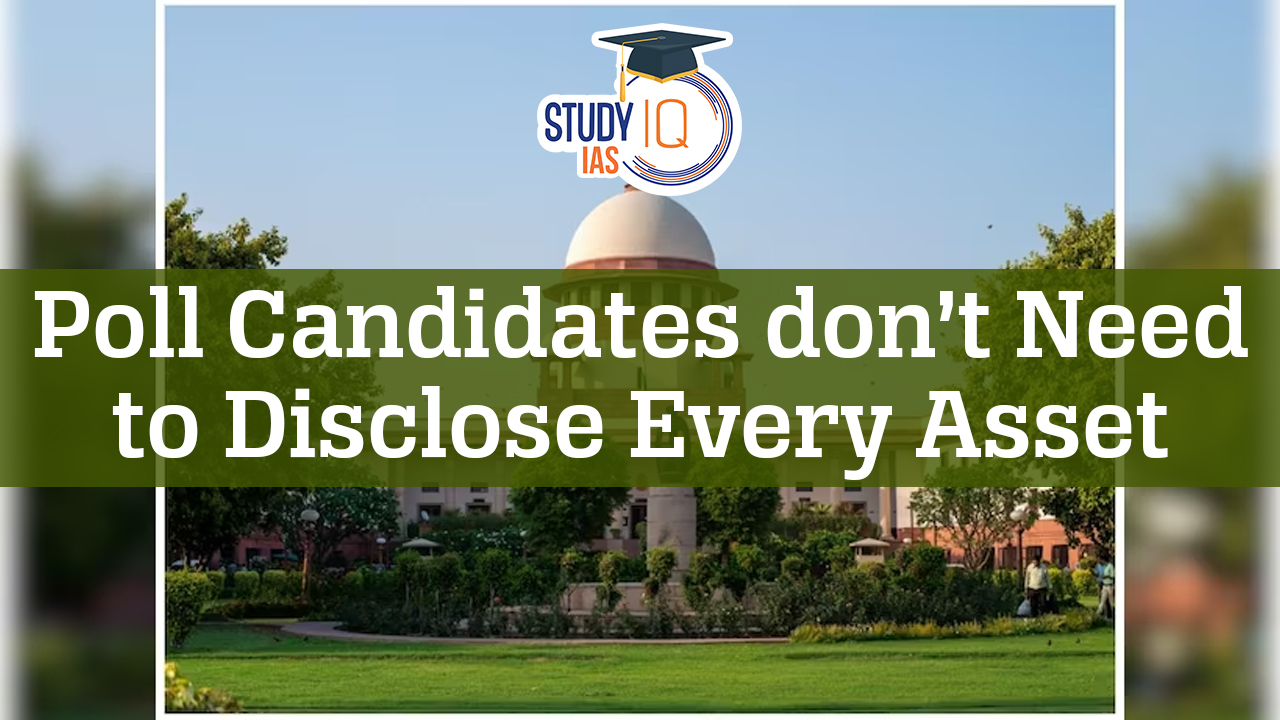Table of Contents
Context
- The Supreme Court recently held that candidates need not disclose every piece of information and possession in their election affidavit unless it is substantial in nature.
- An independent candidate from Arunachal Pradesh was initially disqualified for failing to declare three vehicles in his affidavit, but the Supreme Court later overturned this.
Legal Requirements for Disclosure of Assets
- Under Section 33 of the RP Act and Rule 4A of election rules, candidates must file an affidavit with their nomination papers disclosing criminal antecedents, income, assets, and education.
- The Supreme Court’s ADR Vs Union of India case in 2002 established voters’ right to know these details.
- Section 33A added to the RP Act mandates the inclusion of criminal antecedents in the affidavit.
- Section 125A of the RP Act states that not furnishing information, providing false information, or concealing information can result in imprisonment up to six months, a fine, or both.
Issues with Criminal Charges
- There are challenges with candidates facing serious criminal charges running for elections.
- Some evade full disclosure by leaving parts of the affidavit blank, a practice that was addressed in Resurgence India Vs EC (2013), ensuring all columns are filled.
- ADR reported that 19% of the 2019 Lok Sabha election candidates faced severe charges like rape, murder, or kidnapping.
Recommendations for Reform for Disclosure
- The Law Commission’s 244th report and the EC’s 2016 memorandum suggested electoral reforms, including:
- A minimum two-year imprisonment for false affidavits leading to disqualification.
- Day-to-day trials for cases of false affidavit filings.
- Debarment from elections for persons charged with serious crimes, provided the case was filed at least six months prior to the election.
- Supreme Court Directives for Disclosure: In Public Interest Foundation Vs Union of India (2018), the Supreme Court directed candidates and political parties to publicly declare criminal antecedents in newspapers and electronic media thrice before elections.
- While barring charged candidates could be misused politically, implementing stricter punishments for false affidavits and disqualifying offenders is recommended.
- The Supreme Court’s orders for publicising criminal records must be strictly enforced, aiding voters to make informed decisions.


 Utkal Divas 2025: Odisha Foundation Day ...
Utkal Divas 2025: Odisha Foundation Day ...
 List of Military Exercises of India 2024...
List of Military Exercises of India 2024...
 GPS Spoofing and Its Impact in India: A ...
GPS Spoofing and Its Impact in India: A ...





















